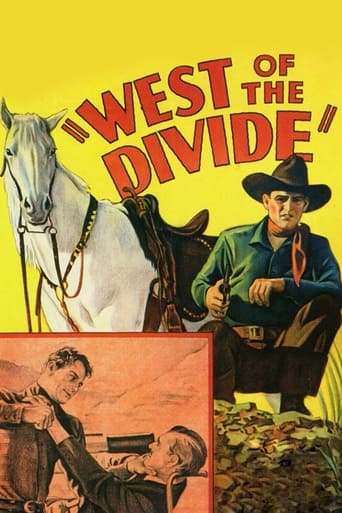


West of the Divide
Ted Hayden impersonates a wanted man and joins Gentry's gang only to learn later that Gentry was the one who killed his father.
-
- Cast:
- John Wayne , Virginia Brown Faire , George 'Gabby' Hayes , Lloyd Whitlock , Yakima Canutt , Lafe McKee , Billy O'Brien


Similar titles
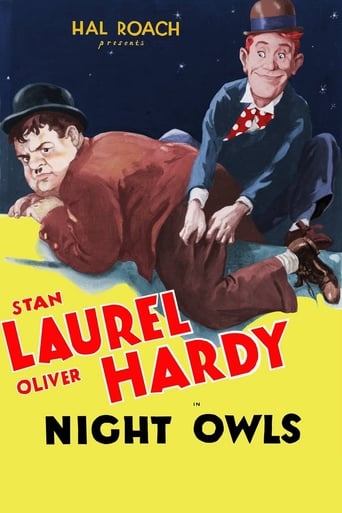
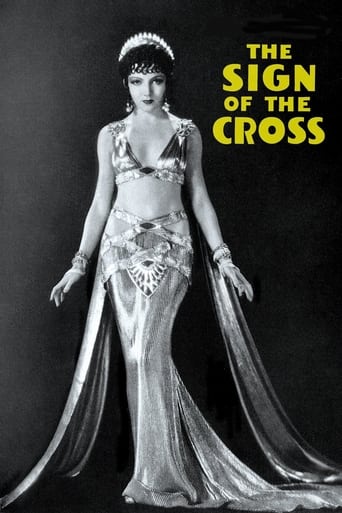
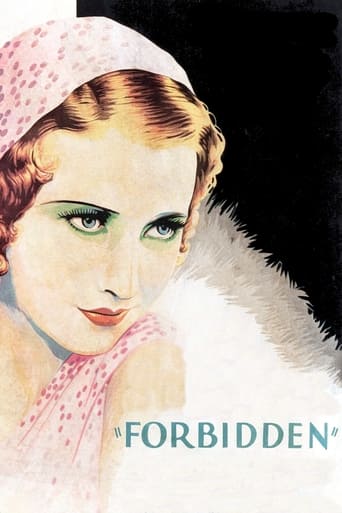
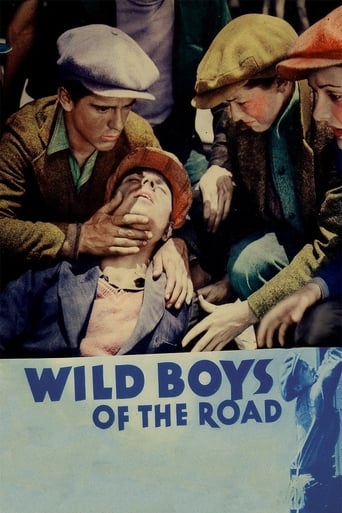
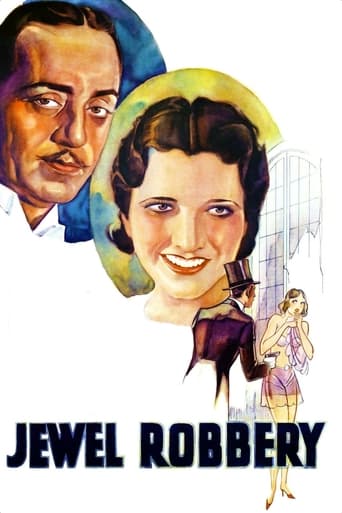
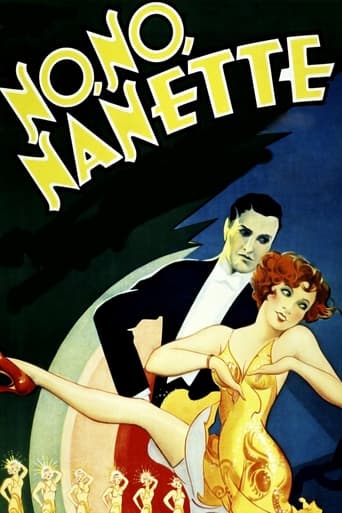
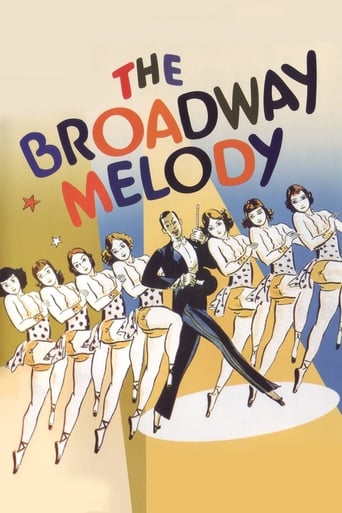
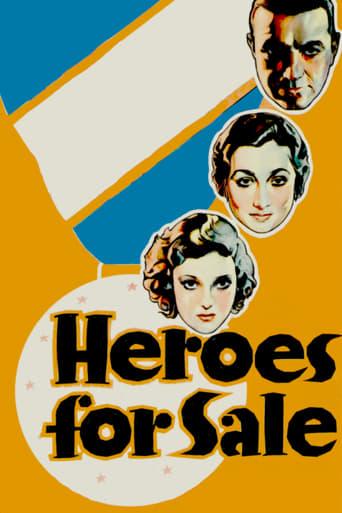
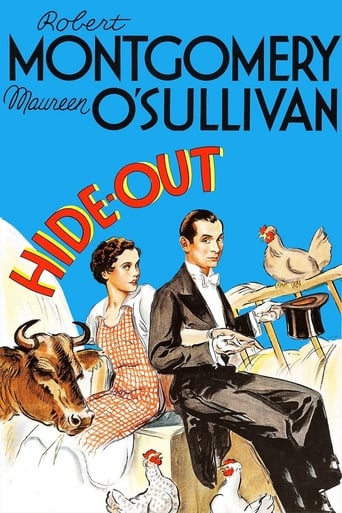
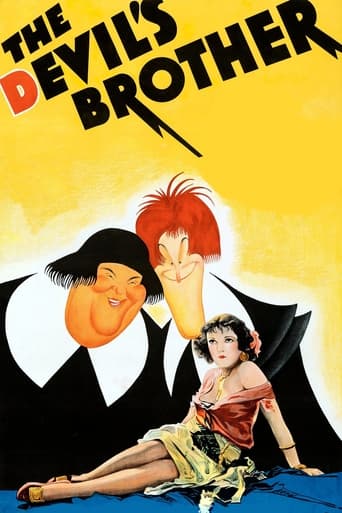
Reviews
Very very predictable, including the post credit scene !!!
Surprisingly incoherent and boring
A Masterpiece!
Very good movie overall, highly recommended. Most of the negative reviews don't have any merit and are all pollitically based. Give this movie a chance at least, and it might give you a different perspective.
Frequently used story gets a good presentation here in "West of the Divide," and the excellent cast helps ensure high quality.Young John Wayne and grizzled George Hayes start with what I learned in college theater-history classes was called a "feather-duster" scene, where characters -- such as a maid, with a feather-duster -- tell the background of the story, today called "the back story." It's kinda corny, but isn't too damaging.Probably even in 1934 what was about to happen was predictable, but, before that predictable ending, enough happens in between it should hold the viewer's interest. It held mine.When the hero meets the leading lady, there is no poor-writing instant romance. In fact, there is no real contact. It's an unusual boy-meets-girl.That girl is Virginia Faire Brown, who is shown with 74 credits, although she never rose to be a major player and certainly not a star. But she is very attractive, even elegant, with an unusual dark-haired beauty.Her character's father is played by the veteran Lafe McKee. The sheriff is by that veteran, and very talented actor, who didn't, alas, often enough get to show just how good an actor he was, Earl Dwire.Chief bad guy is played by "Loyd Whitlock," who is usually known as Lloyd Whitlock, a very busy man with more than 200 credits!OK, good story, great cast ably performing, lots of riding scenes, and a no-music-track realism that should keep you pinned to your seat. And if you want to see it, there's a good print at YouTube.
There's a short list of films where John Wayne's character dies. I don't think "West Of The Divide" is on that list, but look again.In the opening five minutes, we watch a man collapse after drinking from a poison water hole. A close up reveals him to be none other than John Wayne. Less than a minute later, he's dead.Don't worry: That's not a spoiler. John Wayne is playing two characters in this movie. One, Gatt Gans, is a deadly outlaw who, as mentioned, winds up just dead. The other, Ted Hayden, happens to look like Gans, which Hayden discovers after lifting a wanted poster off Gans's corpse. It turns out Gans was en route to perform a hired killing, and it just so happens Hayden has some unfinished business with the hombre behind it."Maybe fate's kinda taken a hand in this deal," Hayden observes, before telling his pal Dusty (George "not yet Gabby" Hayes) that he'll pretend to be this bozo with the identical kisser.Fate indeed takes a hand in "West Of The Divide," a mighty heavy one, too. "West Of The Divide" is practically nothing but fate taking a hand.A couple of scenes on, a young woman rides away from two bandits. She falls off her horse and hides in a barn. A few moments later, the bandits ride by and happen to get into a fight over losing her. One pulls out a gun, and in the scuffle unknowingly wings her with a bullet. Minutes later, while she's bleeding dangerously close to death, Hayden and Dusty just happen to decide to bunk down in the same barn. Dusty discovers some blood, and well...That's not even mentioning the little boy who happens to have his own connection to Hayden's past, and happens to be associated with the group of baddies who happen to be after the woman and her money, and happens to pick just the right moment to lift some bullets from someone's gun...As much as it happens to reek of plot convenience, "West Of The Divide" also offers some memorably weak acting. The father, the chief villain, the woman, all play their roles with wooden stiffness. Even Hayes lacks his typical elan.Wayne by contrast is terrific, whether making friends with the boy or delivering some long and pointless exposition to Dusty about how Dusty saved him when he was a boy ("Anyway, it won't do you no good, livin' this all over again," says Dusty after stringing out Hayden's tale for five long minutes.) Wayne also grimaces with believable anger when he catches up with someone he's been after for a long time. Given the material, it would have been understandable if Wayne had just gone through the motions, but he really inhabits the part. It's a foretaste of what he would do with better roles in the not-so-distant future, though he didn't always perform as well as this in his B-picture days.The stunts here are solid, too. One involves a man standing on a runaway buckboard as it disintegrates around him, maybe the coolest stunt in the whole Wayne run of Lone Star pictures.When I wasn't watching Wayne, I was mostly just bored with this. Director Robert N. Bradbury maintains his characteristically slow pace, making all the silly fate twists he throws at you easier to notice. The Lone Star pictures were meant for casual viewing, and by younger viewers, but even with the bar lowered so it seems somehow not quite low enough for this dull oater.For Wayne completists only who want to see him in a rare double role, and playing a bad guy, too. Just don't go anywhere for the first five minutes. After that, though, there's little point sticking around.
Another John Wayne Monogram Lone Star Production, in which the cast is almost the same, the plots variations on evil versus good, the acting perfunctory and the whole shebang put together in a time slightly longer than it takes to read a review of it.It was filmed in Kernville, some miles north of Bakersfield, a popular place a day's drive from Los Angeles. Kernville is accessible mountainous country often used for Westerns, ambitious or otherwise. The final race between the coach and the Indians in John Ford's "Stagecoach" was shot there.Like some of Wayne's other inexpensive and hasty Westerns, this was written and directed by Robert Bradbury, the father of one of Wayne's childhood friends, later known as Bob Steele, from his days in Lancaster, California.There isn't much of substance to the movie. Horses gallop -- Yakima Canut gets prominent screen credit -- and money is mishandled and everyone carries a gun and uses it. It's of interest for fans of John Wayne or the productions of the Poverty Row studios like some people I could name. Well -- one person I could name, anyway, who took the trouble to track down the original location of studios like Monogram and PRC and photograph them as they now are. One was turned into a fast-food chicken restaurant.It's easy enough to criticize these shabby films but they kept the actors and crew employed during the difficult times of the Great Depression. With no fanfaronade, they filled double-bill slots at the local theaters too. And one must ask one's self if, after all, they were more mindless than some of the crap that now keeps American audiences glued to the television set. Are they really worse than, say, "Oprah", "World's Wildest Police Videos", or rock videos? Aren't they all at or near asymptote?
I was a TV addict at a very early age. I lived with my grandparents, and my grandfather and I used to fight over what to watch on his television. He loved westerns; we watched "Cheyenne," and "Wyatt Earp," and "Rifleman," and numerous others during the fifties. I didn't quite share his enthusiasm for these shows, but it was a way to pass the time with him. But after seeing "The West Divide," I know why he loved westerns so. Some may refer to it as a B movie, but I think the B stands for basic. There's something thrilling about its lack of artifice. The sound of fists connecting to flesh doesn't have that ungodly amplification that later, more technically sophisticated examples of the genre had. The sentiment is rarefied like the open air. When the heroine is shot, it's played out plainly and purely; sometimes you can get a stronger emotional effect without a musical score. And the sequence with the runaway team is bracing; I figure the legendary Yakima Canutt stunted in this scene.And then there is the young John Wayne. I think it is during this period in his career that he proved himself to be the giant star he became. When he dons white buckskin in "The Telegraph Trail," he becomes almost otherworldly. Here he plays a man posing as an outlaw to find the killer of his father. By the time he has set things right, lying supine in his long-lost brother's arms, you understand why so many moviegoers couldn't get enough of him. His entire body in that moment gives way to the scene, and you cherish how tenderly and passionately he's willing to play his part. This movie taps into that well of memories some of us have with family and loved ones, and as Father's Day is tomorrow, it helps remind me what deep, elemental emotion men often feel that these days goes unacknowledged. I certainly wasn't aware of it in those days with my grandfather; but I've gained a new consciousness that has come with my being about his age at the time and watching things I know he'd have loved. Like "The West Divide." It makes you wish they made more westerns like this one.
